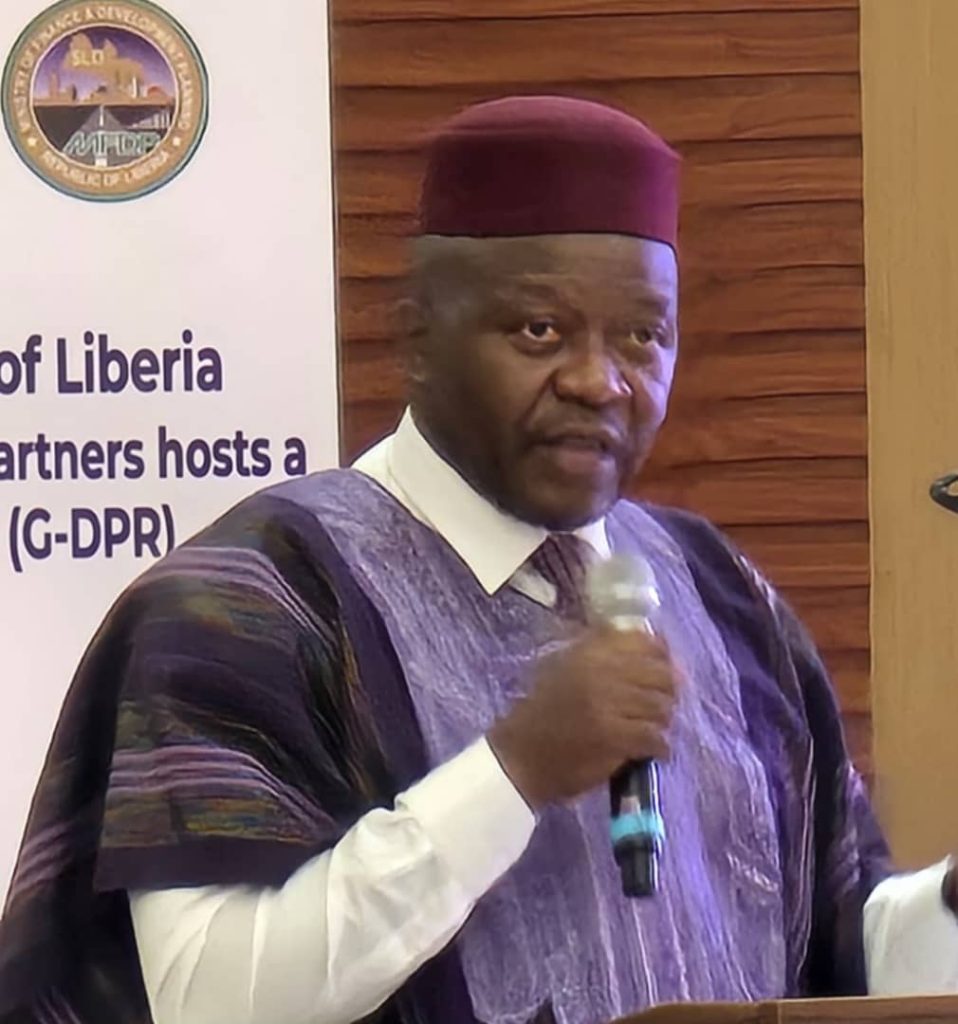Minister Augustine Kpehe Ngafuan, Liberia’s Finance and Development Planning Minister, delivered a robust defense of the government’s economic performance, emphasizing significant progress in infrastructure development, macroeconomic stability, and public service delivery. He contrasted the current positive trajectory with the challenges faced under the previous administration, citing tangible improvements that have positively impacted the lives of Liberian citizens. Central to his argument was the considerable progress made in connecting previously isolated regions through improved road networks, facilitating trade and access to essential services. He also highlighted positive macroeconomic indicators, such as declining inflation and improved electricity access, contributing to a more stable and conducive environment for economic growth.
Ngafuan underscored the transformative impact of infrastructure development, particularly the improved road networks connecting remote areas like the southeastern region and Lofa County to the capital, Monrovia. This enhanced connectivity has dramatically reduced travel times, enabling same-day trips that previously took several days, a significant boon for commerce and personal mobility. He cited testimonials from senators, highlighting the widespread acknowledgement of these infrastructural improvements. The Minister stressed that these advancements address a long-standing impediment to economic growth – the lack of accessible transportation routes for regions with high production potential. By connecting these areas to larger markets, the government is facilitating economic activity and fostering broader prosperity.
Beyond physical infrastructure, Ngafuan highlighted positive macroeconomic trends, including a significant reduction in inflation to just over 7%. He linked this achievement to improved service delivery, referencing the expanded reach of the National Transit Authority (NTA) buses, which now operate to Voinjama and Harper, even during the challenging rainy season. This expanded reach of public transportation further contributes to accessibility and interconnectedness within the country. He also emphasized the government’s commitment to enhancing electricity access, noting its crucial role in supporting businesses and overall economic activity. The increased stability of the power supply has alleviated the burden on businesses that previously faced high costs for maintaining operations, directly contributing to improved profitability.
The Minister proudly announced Liberia’s selection by the World Bank and the African Development Bank to develop an energy compact aimed at dramatically increasing electricity access from 33% to 75%. This recognition, he argued, serves as a powerful testament to the government’s commitment to progress and development. He challenged critics to define progress if these achievements did not qualify, highlighting the significance of Liberia’s inclusion in this select group of countries. The initiative promises to further transform the lives of Liberians, fostering greater economic opportunities and improving living standards across the nation.
Ngafuan provided further evidence of economic revitalization, pointing to the resumption of night operations at the Freeport of Monrovia, a clear indicator of increased economic activity. He linked this to improved street lighting, which allows businesses to operate for extended hours, boosting sales and contributing to economic growth. He also cited improvements in water supply and the stability of petroleum and rice prices. The absence of long queues at petroleum stations and rice warehouses, he argued, represents a significant improvement in the quality of life for ordinary citizens, particularly mothers who previously faced the hardship of scrambling for these essential commodities.
Finally, Minister Ngafuan emphasized improvements in public sector management, highlighting the government’s consistent and timely payment of civil servants’ salaries. He noted that this consistency has become the new norm, to the point where delays beyond the 25th of the month now prompt complaints. This, he argued, demonstrates the government’s commitment to accountability and its success in establishing a higher standard of performance, holding itself accountable to the expectations it has set. The Minister’s presentation painted a picture of a nation on a positive trajectory, with tangible improvements in infrastructure, economic stability, and service delivery, marking a stark contrast to the challenges of the past and offering a promising outlook for the future.














